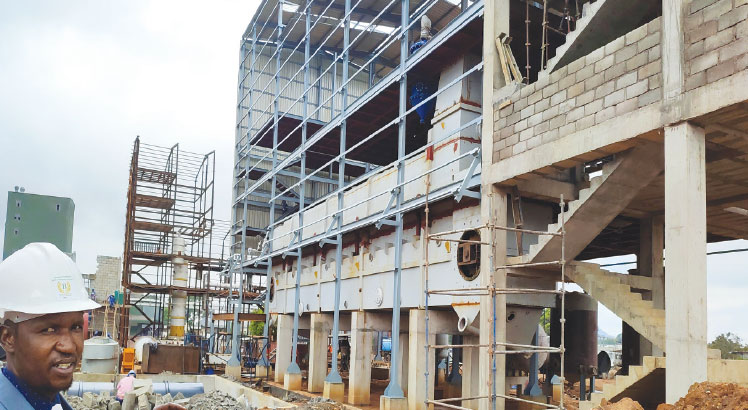Bakhresa invests k170bn In cooking oil refinery
Bakhresa Malawi Limited says it has invested $100 million (about K170 billion) in the green field cooking oil refinery plant to crush 500 metric tonnes (MT) of soya beans per day and create an initial 500 jobs.
The firm’s human resource and compliance manager Richard Tchereko said in an interview on Friday in Blantyre after a tour of the project site that they expect the investment to have positive multiplier effects along its value chain ecosystem to benefit Malawians.
He said: “This massive investment is a game-changer in the domestic agro-processing sector. This is a green field project and construction is at between 70 and 80 percent such that first production run is expected between April and May next year.
“Local value addition literally means job creation. We envisage to be procuring about 150 000MT of soya beans from local farmers in every harvest season.”

Tchereko said the project is expected to stimulate smallholder farmers to embrace crop diversification and grow more soya beans, whose annual output is estimated at 300 000MT, because of the readily available market at Bakhresa Malawi Limited.
He said Bakhresa Malawi Limited, a subsidiary of conglomerate Bakhresa Group headquartered in Dar es Salam, Tanzania, is implementing the project in line with the Malawi 2063 key pillar on industrialisation, to ensure inclusive economic development and wealth creation.
Over the years, Malawi has continuously registered a wide trade deficit largely due to imports valued at $3 billion (about K5.1 trillion) surpassing exports at slightly above $1 billion (about K1.7 trillion) annually.
But Tchereko said through the investment, the factory will be producing high value-added products such as soya de oiled cake, soya lecithin, crude soya bean oil, free fatty acids, soap stocks, spent earth and fly ash for the export market, thereby generating foreign exchange.
“Cooking oil produced at this facility can be a substitute for importation of edible crude oil and help in saving foreign currency as well,” he said.
Tchereko said they hope that with the investment, local prices of cooking oil will be stabilised as the firm is planning to extract oil from soya beans available locally instead of importing crude cooking oil at volatile international market prices.
The firm is also planning to partner local farmers and cooperatives to supply soya beans to the factory.
Speaking in an earlier interview, Minister of Trade and Industry Sosten Gwengwe described the investment as a game- changer that will have positive trickle-down effects.
He commended Bakhresa Malawi for leading the way in terms of local manufacturing and import substitution.
Said Gwengwe: “I want to encourage other local manufacturers to reinvest into the economy in various other aspects. Foreign direct investment is good, but sometimes before we look outside, we also must look inside and nurture our own local manufacturers and those that are on the ground, those that are already employing fellow Malawians.”
He said government will ensure that the business environment is conductive for the thriving of the private sector.
Gwengwe said the mega farms initiative government is implementing will be handy to enable firms such as Bekhresa have raw materials to source from, adding that current output of soya beans at 300 000MT per annum, may not be enough to sustain the venture.
Bakhresa Malawi Limited could be described as one of the success stories of privatisation. In 2003, as part of the privatisation process, the firm acquired the then State-owned Grain and Milling Company and invested in modern computerised wheat mills with a combined capacity of 500MT per day.
Over the years, the firm has diversified and invested in soap manufacturing plant and 50 000MT wheat storage facilities.
The parent company, Bakhresa Group, has expanded across various divisions over time with over 30 subsidiaries and 28 fields of operation across nine countries in Africa.





